612: quantum of sollazzo
#612: quantum of sollazzo – 24 June 2025
The data newsletter by @puntofisso.

Hello, regular readers and welcome new ones :) This is Quantum of Sollazzo, the newsletter about all things data. I am Giuseppe Sollazzo, or @puntofisso. I've been sending this newsletter since 2012 to be a summary of all the articles with or about data that captured my attention over the previous week. The newsletter is and will always (well, for as long as I can keep going!) be free, but you're welcome to become a friend via the links below.
The most clicked link last week was this look at falsehoods about aviations seen from a programmer's perspective.
AMA – Ask Me Anything!
I've received 2 good questions – folks, you have to send me more! :)
The first, from Alessandro, asks: "You've been sharing loads of resources, data. I wonder whether this huge collection of good stuff can be browsed, for instance by keyword (politics, sustainability, coding, economics, ...). Do you have an index?"
Unfortunately, I don't have a ready-made index for Quantum... yet – I never set up the newsletter to work this way, and with 10+ years of links there are a lot of dead webpages in the list of links. Also, the sections of the newsletter have evolved over time, and at the beginning I didn't have any sections at all (e.g. tools and news related links were all in a big list).
On the other hand, I've been thinking about this for some time, mostly because I'm a big fan of Dense Discovery, a design-oriented newsletter that offers a searchable database of its links to its premium subscribers. There are multiple ways I could do this, some of which would also allow me to learn something new (e.g. use agentic LLMs to categorise and check the links? I could share the code for that, too.)
So, let me turn into a question to you, readers: would you like me to create such an index for Quantum? What would be the features you'd like to see? What categories should the index have? Do you think this should be a premium service (to note: I haven't had formal subscriptions for some time, but it could be something to think about). >>>> JUST HIT REPLY AND LET ME KNOW YOUR THOUGHTS.
The second question, by an anonymous reader, asks: "For someone interested in making a career shift (early 30s / work in service design) what are the employment prospects like for someone starting a career in data science for the next 5-10 years? I'd need lots of training over the next 18 months and support from my employer but I think it could be worth it. I'm interested in working in data analytics/data science but unsure about the risks to the sector (i.e. from AI) over the coming years".
A million dollar question, this one :) If I could predict the direction of travel of tech and business over the next decade, I'd be making big bucks... Seriously, though, let me share a few thoughts.
The first is that technology evolves at a fast pace, sometimes faster than an 18 month-cycle, and what you learn isn't directly applicable, but gives you useful baggage. When I tried my big failure of a PhD (I quit after 5 months, in case I never told you this story), there were students around me who were completing their PhDs in their 3rd or 4th year and their subject had completely been superseded by changes around them. When I was at university, I didn't learn a "professional" programming language until my second term, and I learned a lot about the inner workings of operating systems that I've never applied ever again in my working life; practically useless, but I'd defend the position that they made me a better overall computer scientist and set me up for a career in IT first, data and digital then.
There is also hype to contend with, when learning new skills. Since I started advocating for Open Data in the early 2010s I've seen at least three hypecycles: "(open) data is the solution to all problems", "blockchain is the solution to all problems", and "AI is the solution to all problems"; at least one of these, blockchain, came and went at the speed of light, but all of these somehow have left some lasting legacy. The moment you start training for the current hype cycle, you're probably already "late" if you want to catch up – but that means that you can combine technical training with an understanding of what solutions addressed problems in a long-term, sustainable way. In other words, don't underestimate the importance of your service design skills in framing your technology retraining.
The second is that there will always be legacy solutions to maintain and transform, which creates opportunities for whatever tech or skills you might learn today. Aside from the legendary (and partly overstated) status of COBOL developers that are still maintaining mainframe software and porting it to the cloud, we're already seeing adverts for data developers to transform legacy data pipelines, for front end developers to move from React to Svelte, etc. There are also companies looking for less common or niche skills: famously, trading firm Jane Street asks its developers to use OCAML.
Which brings me to my third point: that there are two ways of working in data as in every other technology related field: depth and breadth. In other words, one is to become a deep expert, a performance optimiser, a model creator – this can be incredibly fun, stimulating, and, at the moment, also very well paid. It is difficult, and it requires a lot of effort in learning the minutiae of a single subject, which makes it potentially boring and untranslatable to other areas. The other way of working is to focus on solving problems, which can be equally fun and more translatable, but less interesting from a tech-first point of view; you still need a basis of training, but it becomes less important to know the cutting edge of things and more to focus on the flow. What makes you tick should inform the choice. I was in the first camp earlier in my career and I still get a thrill from tech, but professionally I moved to the other camp when I met the revolution that was the adoption of user centric design in Government.
That's it for this issue – AMA – Ask Me Anything returns in a few weeks. Submit a question via this anonymous Google form and I'll select a few every few weeks and answer them on here :-) Don't be shy!

The Quantum of Sollazzo grove now has 31 trees. It helps managing this newsletter's carbon footprint. Check it out at Trees for Life.
'till next week,
Giuseppe @puntofisso.bsky.social
🛎️ Things that caught my attention
Paolo Filipe Bertoldi, an old time friend and reader of Quantum, gave me a tip to read this brilliant 2005 essay by historian Carlo Ginzburg, called "Conversations with Orion". It offers some interesting reflections about AI and trust in machines. Great quote, this one: "It is the slow accumulation of experience that makes the instantaneous reaction to chance possible. In any case, the identification of a promising theme of inquiry (the snapshot) must necessarily be followed by a film. Simply put, research."
I love that South African newsletter The Outlier does this chart game – I should do something like it!
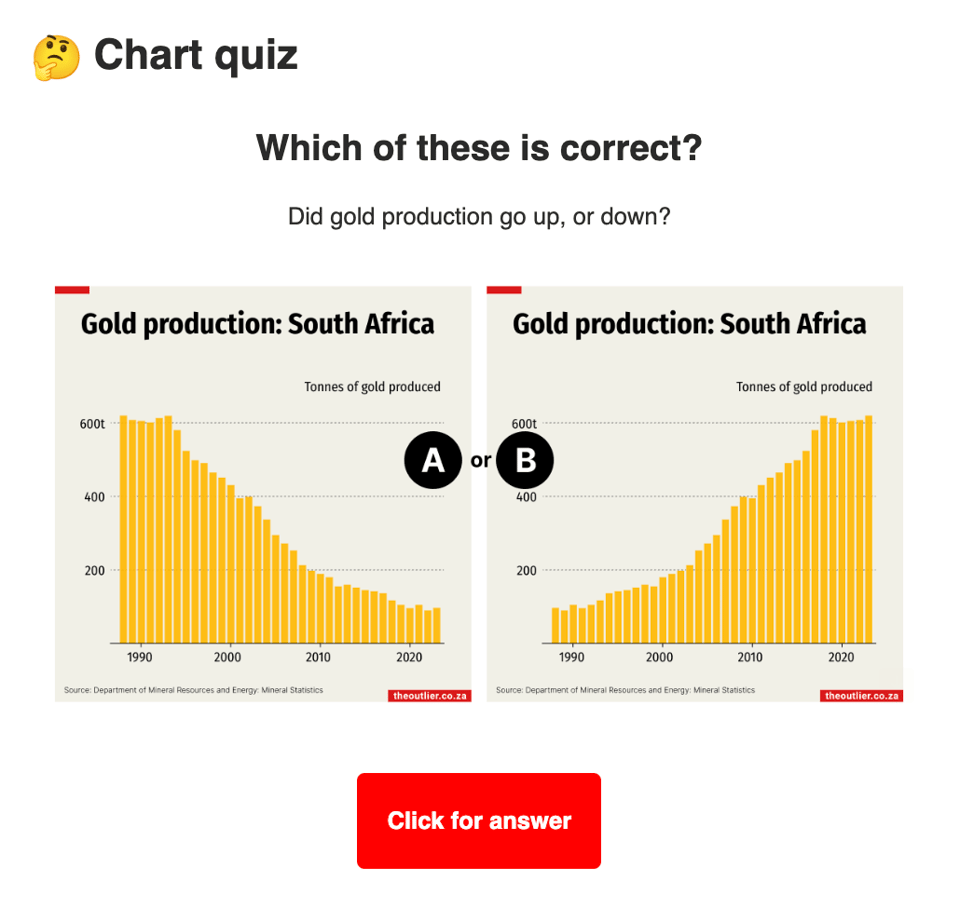
A few very good events are coming up as part of London Data Week, and I'm going to take part to a few of them if I can. One to highlight this week is by tech co-op Outlandish, focussed on environmental data.
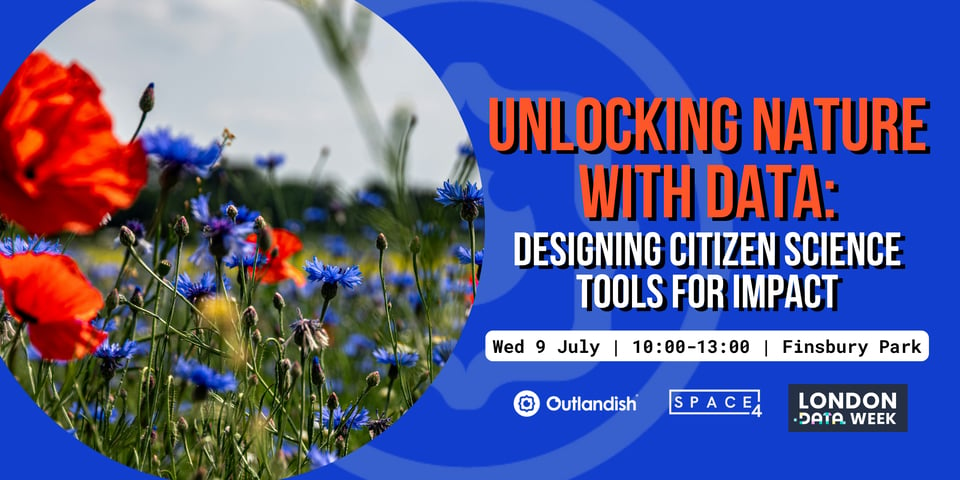
✨ Topical
Visualizing Israeli airstrikes on Iran and retaliation in maps
A large team of all talents at the CNN, including my newsletter buddy Soph Warnes, has crafted this brilliant dataviz of the current war in the Middle East.
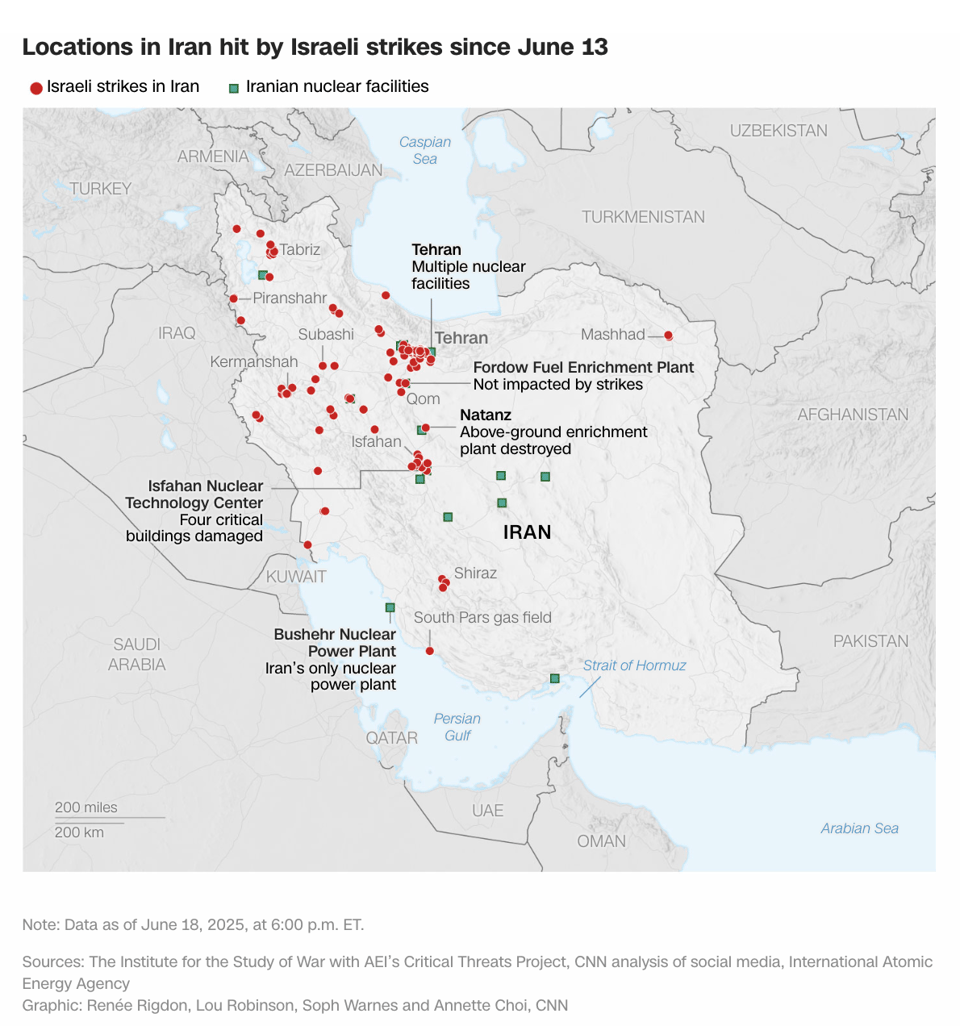
Pentagon Pizza Report
"Pizza joints near the Pentagon suddenly got busy last night" reports the Economist's Head of Data Journalism (and dadjoker extraordinaire) Alex Selby-Boothroyd. TIL: there's a "Pizza Meter Theory" that has been circulating since before the Internet!
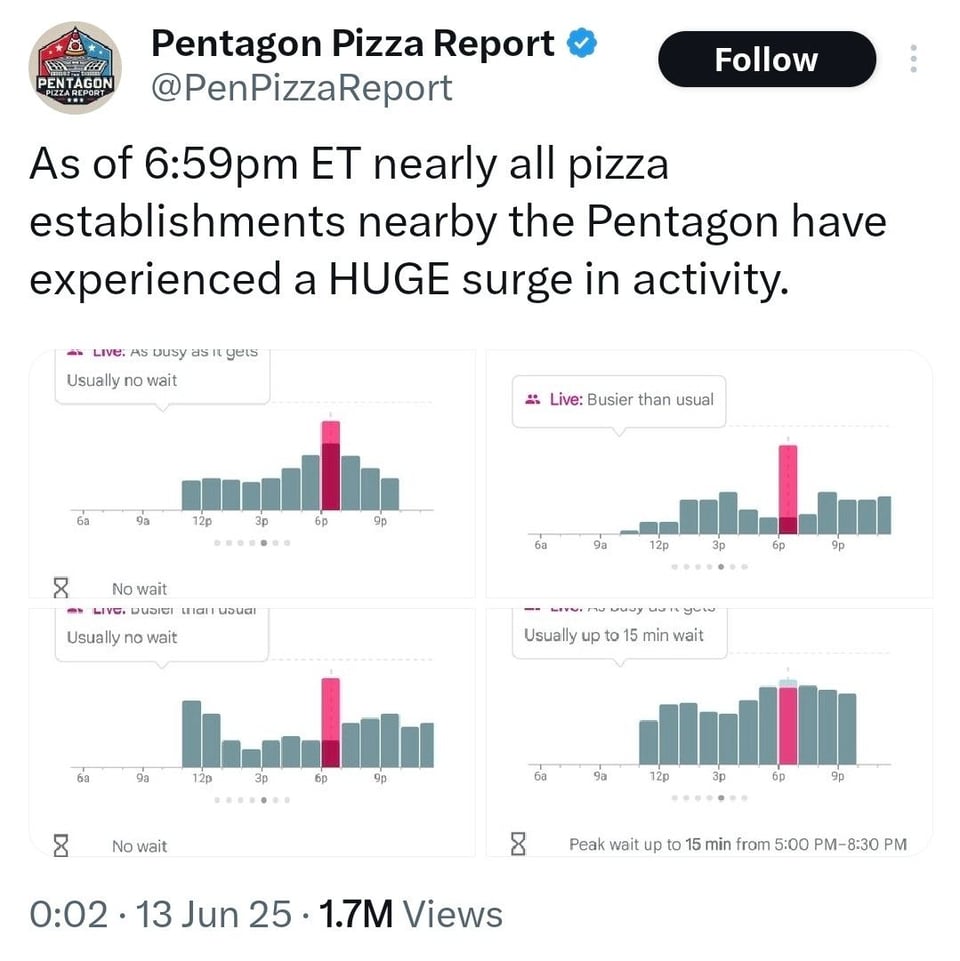
How many people die from gun-related injuries in the US each month?
USAFacts: "According to preliminary data from the US Centers for Disease Control and Prevention (CDC), gun-related deaths were 2% lower in August 2024 than they were the previous month."
Huge disparity across the country, with Massachusetts being the lowest and DC the highest.
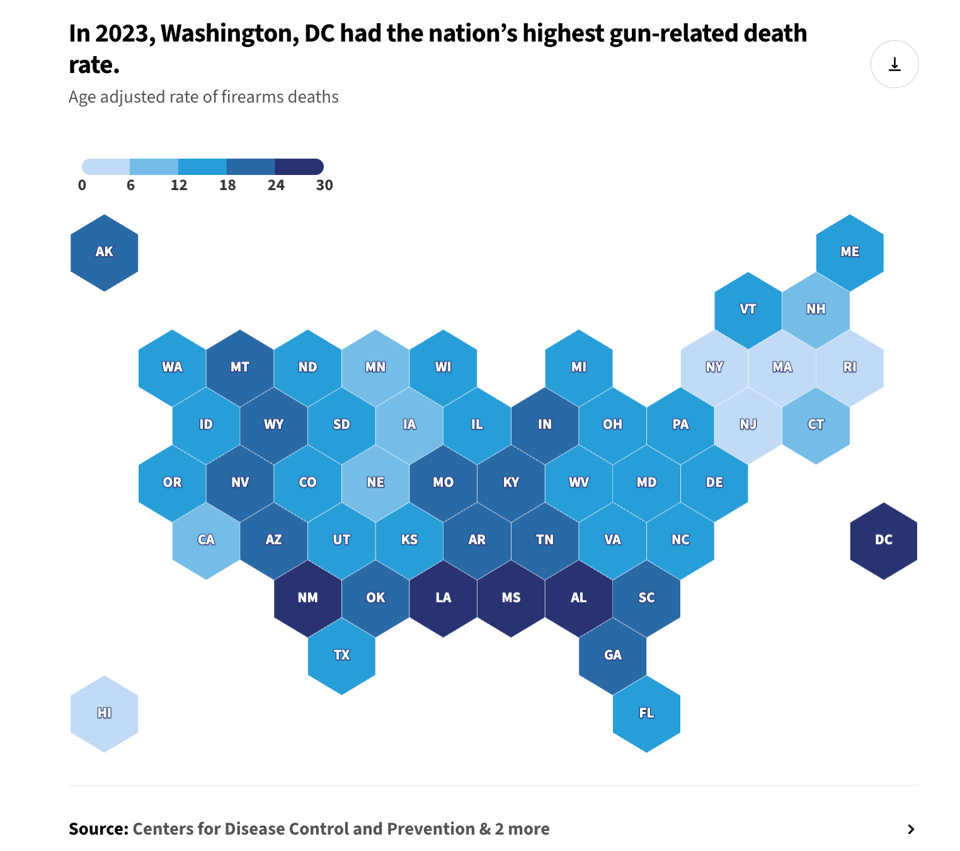
Brain food, delivered daily
Every day we analyze thousands of articles and send you only the best, tailored to your interests. Loved by 505,869 curious minds. Subscribe.

🛠️📖 Tools & Tutorials
Open-source packages for using speech data in ML
"Overview of key open-source packages for extracting features from voice data to support ML applications"
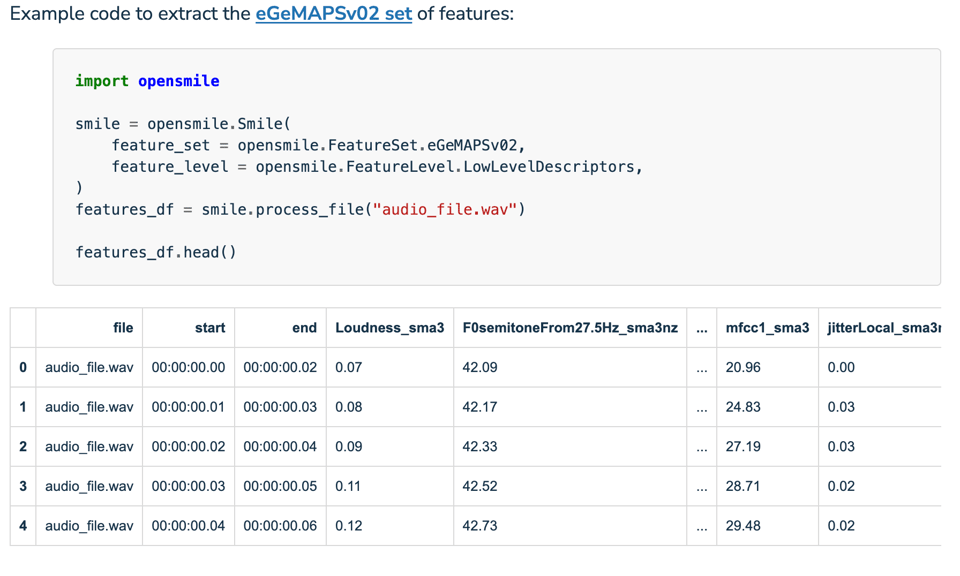
Data Validation Libraries for Polars (2025 Edition)
"In this survey (conducted halfway through 2025) we’ll explore five Python validation libraries that support Polars DataFrames, each bringing distinct strengths to different validation challenges."
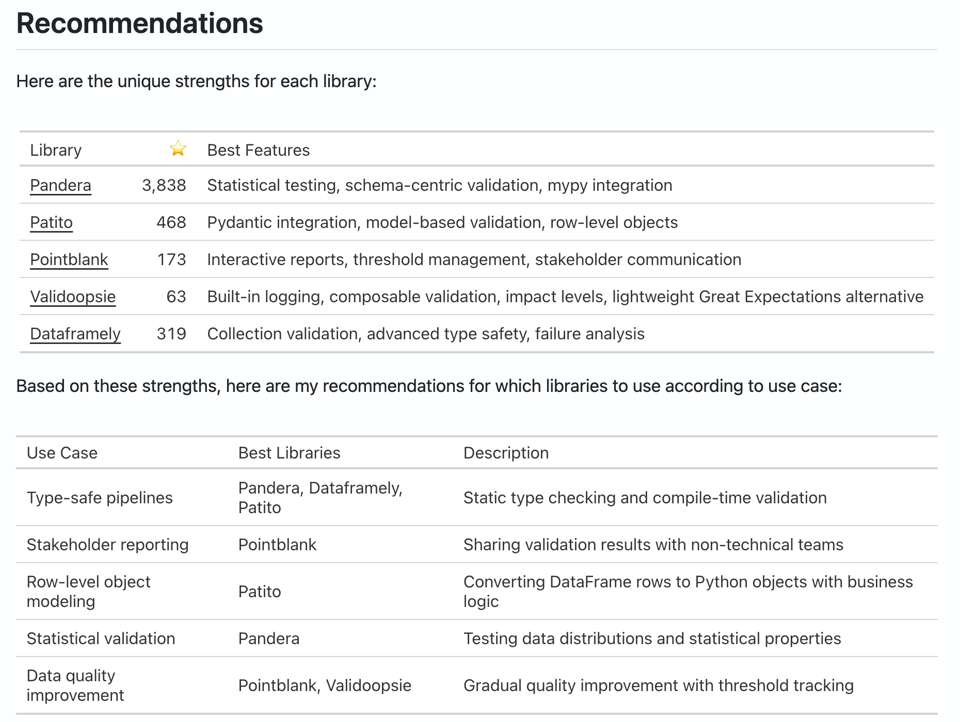
📈Dataviz, Data Analysis, & Interactive
Urban Networks and Walkability: street Connectivity in 600 French Cities
This analysis uses OSMnx, one of my favourite geographic analysis tools.
"This first illustration shows the layout of streets in French cities with over 90,000 inhabitants, represented as a "street rose". The cities are organized according to their increasing levels of entropy, based on Shannon's concept (the closer a city is to an ideal grid pattern, the lower its entropy)."
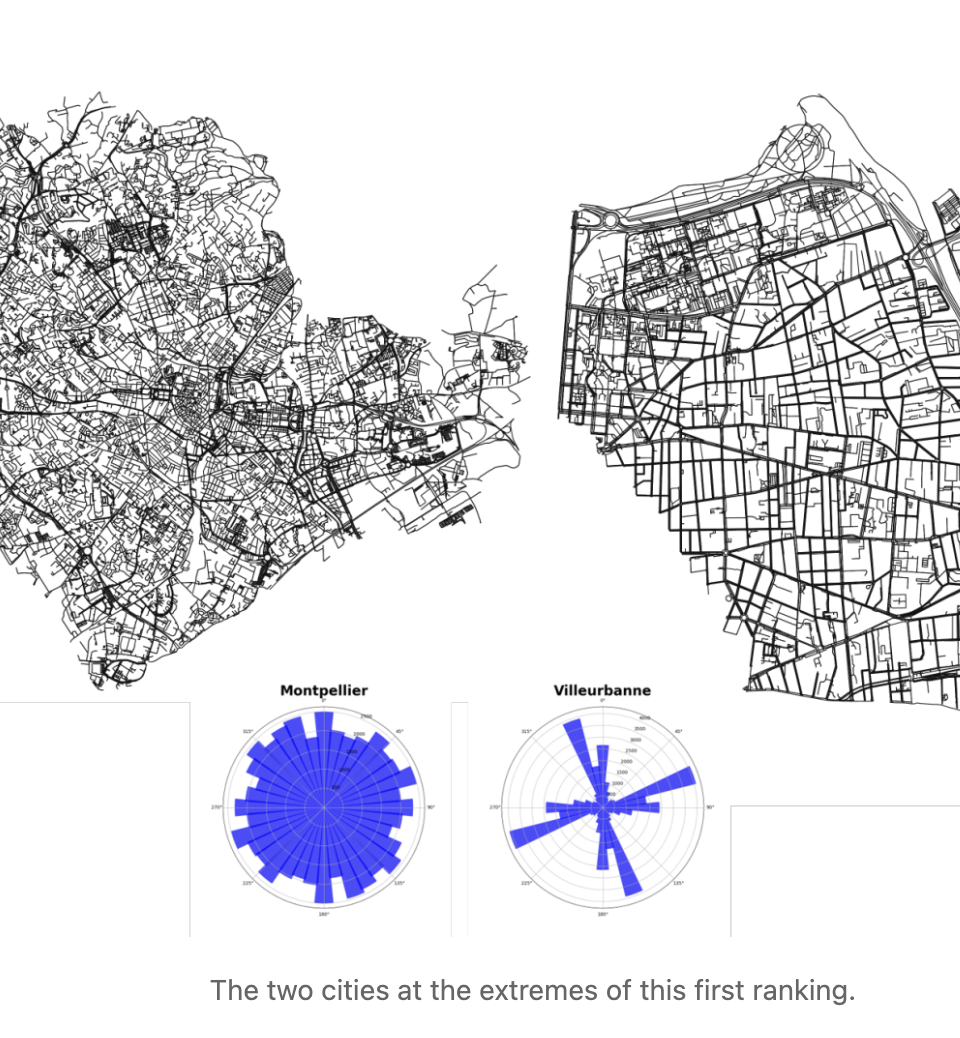
A friendly guide to choosing a chart type
Datawrapper (and regular Quantum legend) Lisa Charlotte Muth: "This article is supposed to give you a first overview of the most important chart types to communicate to a mainstream audience – meaning, I won't touch on niche things like violin plots and dendrograms."
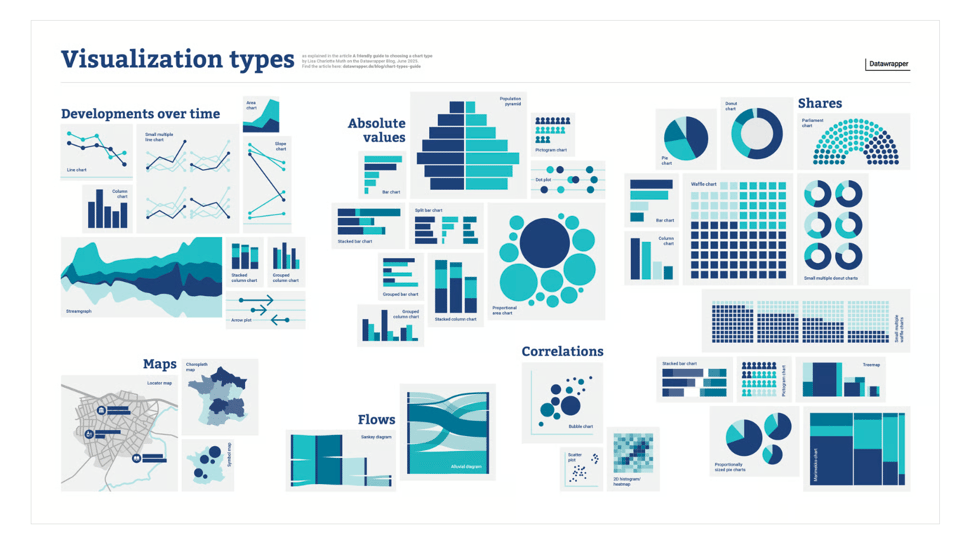
How Accurately Are Asian Americans Cast in Hollywood?
For The Pudding, Dorothy Lu and Anna Li look at addressing the question: "How common is it for Asian characters to be played by an actor of a different ethnicity?"
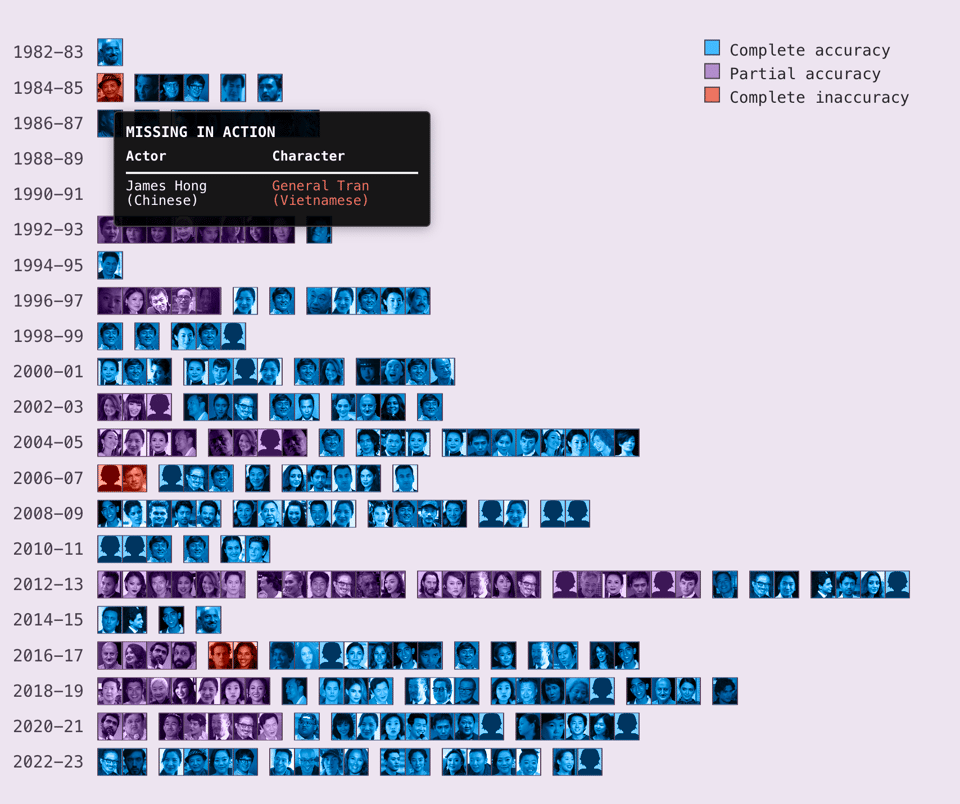
Este gráfico demuestra que no tenemos por qué irnos de vacaciones todos al mismo tiempo
While this article is in Spanish, the chart below is pretty clear about the fact that there are different habits about going on holiday in summer in different European countries.
Another version of the chart, stacked, can be found here on Facebook but I can't track it to the original source.
Automatically translated into English here.
(via Peter Wood)
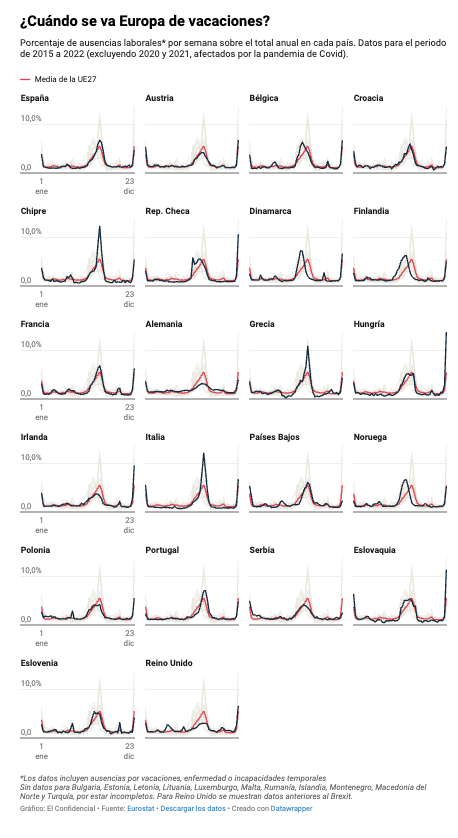
🤖 AI
Have LLMs Finally Mastered Geolocation?
Belllingcat's Foeke Postma and Nathan Patin: "To assess how LLMs from OpenAI, Google, Anthropic, Mistral and xAI compare today, we ran 500 geolocation tests, with 20 models each analysing the same set of 25 images. ... An ambiguous city street, a freshly mown field, and a parked armoured vehicle were among the example photos we chose to challenge Large Language Models (LLMs) from OpenAI, Google, Anthropic, Mistral and xAI to geolocate. "
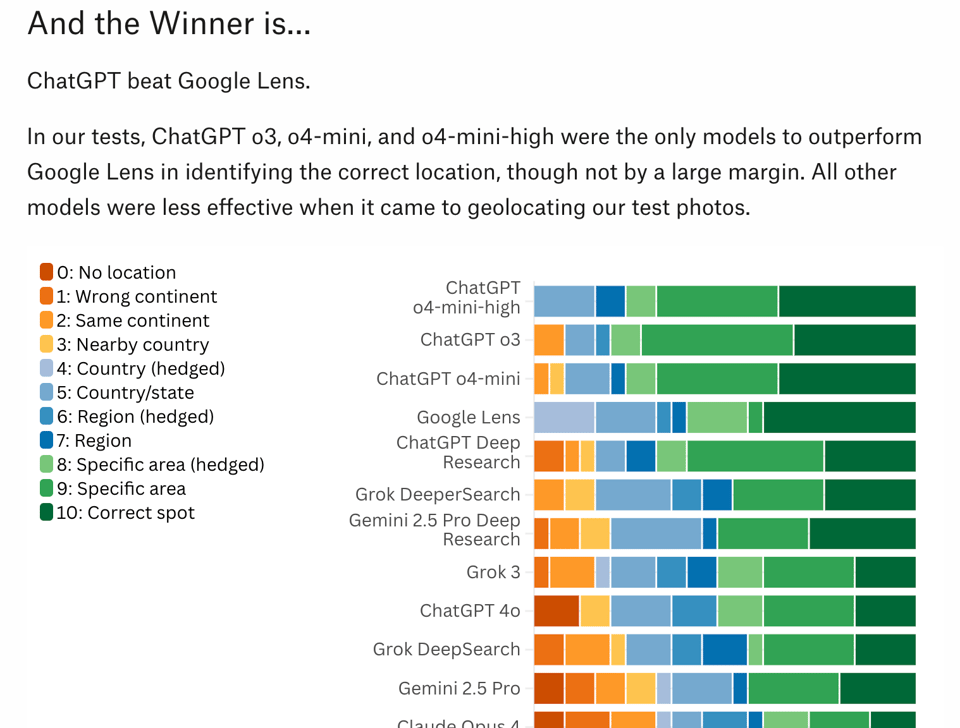
Why Even Try if You Have A.I.?
Joshua Rothman for The New Yorker: "Now that machines can think for us, we have to choose whether to be the passengers or pilots of our lives."
Why Generative AI Coding Tools and Agents Do Not Work For Me
Software engineer Miguel Grinberg: "From the title you already know that this isn't a pro-AI blog post. But it isn't an anti-AI post either, at least I don't think it is. There are already plenty of articles by AI promoters and AI critics, so I don't feel there is a need for me to write one more of those. While I'm definitely not neutral on the subject, in this article I'm just going to share my personal experience with these tools, from a strictly technical point of view."
Field Notes From Shipping Real Code With Claude
"Vibe Coding Isn’t Just a Vibe", says this blog post. It gives a few tips on how to use Claude for coding as well as possible. For example, using a Claude.md file with shared context will help with setting up the prompting.
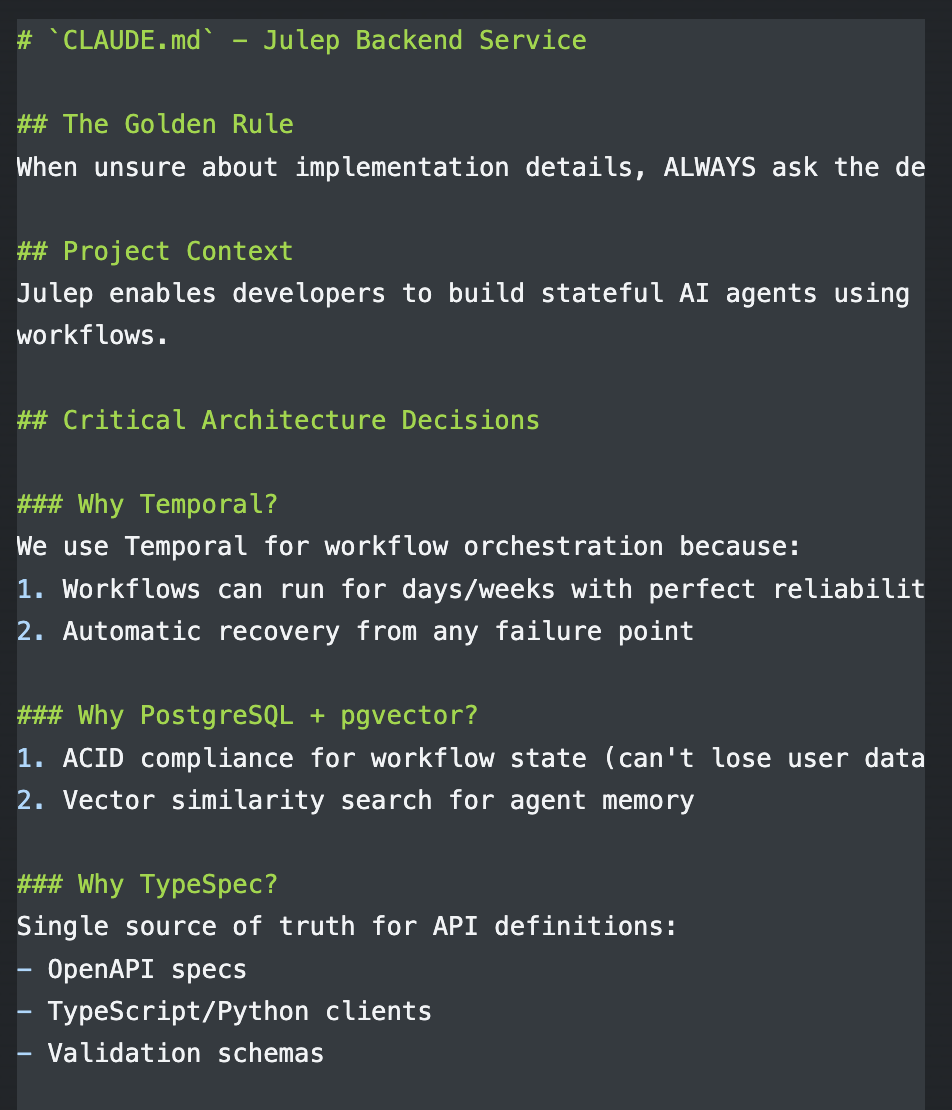
|
DID YOU LIKE THIS ISSUE>? → BUY ME A COFFEE! 
You're receiving this email because you subscribed to Quantum of Sollazzo, a weekly newsletter covering all things data, written by Giuseppe Sollazzo (@puntofisso). If you have a product or service to promote and want to support this newsletter, you can sponsor an issue. |
quantum of sollazzo is also supported by Andy Redwood’s proofreading – if you need high-quality copy editing or proofreading, check out Proof Red. Oh, and he also makes motion graphics animations about climate change.
